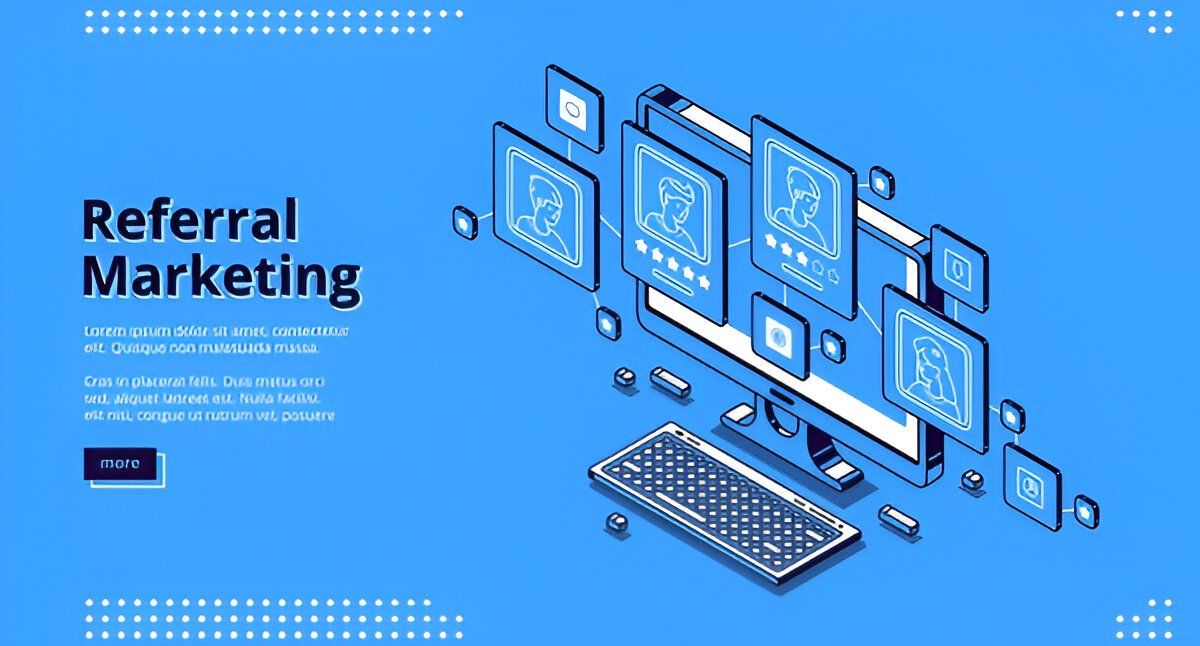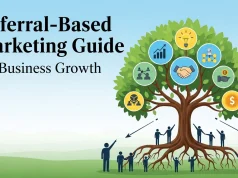Referral marketing is one of the most effective strategies for the manufacture of trust and running of conversions in today’s commercial scenario. Studies suggest that 92% of consumers depend on recommendations from people they know in another form of advertising. Whether you run a small company or aim to score a growing start-up, the growth in referral marketing has the opportunity to accelerate.
This blog will discuss referral marketing, its unique advantage, how to create a successful referral program, and examples of companies that have flourished by taking advantage of this method. Towards the end, you will understand why referral marketing is a game changer for modern businesses.
What Is Referral Marketing?
Referral marketing is a practice to encourage your customers to market their products or services to their friends, families, or colleagues. Think of it as oral marketing, but in the form of more structure and encouragement.
Why is it effective? People rely on the recommendations of their network more than traditional advertising. Some are more likely to try a product if their friend swears by it instead of looking at another Facebook advertisement. This authentic propagation creates a wave effect and converts customers to advocates who help increase your brand.
Why You Can’t Ignore Referral Marketing for Your Business
The Benefits of Referral Marketing
Why should your business make referral marketing a priority? Here are the top advantages:
1. Enhanced Trust
References come from reliable sources such as friends, family, or colleagues. This team of trust makes people more likely listen and take hold than specific ads or sales places.
According to Nielsen, friends’ and family recommendations are the most reliable forms of advertising for 88% of online consumers globally. This trust factor can be important to win potential customers.
2. Higher Conversion Rates
Customers are more likely to be converted to customers who pay compared to customers who systematically detect your brand. A referenced customer is often first class with positive expectations, making the sales process easier. According to research from the Wharton School of Business, referenced customers have 16% more lifetime value than non-pronounced people.
3. Cost-Effectiveness
Referral marketing is more cost-effective than traditional customer collection methods. Instead of funneling in the paid ad, you can reward your existing customers with quotas or discounts to spread words. The return on such investments is often very high, as they result in better qualified potential customers who are more likely to remain loyal.
4. Expanded Brand Awareness
When customers mention your business, they become effective ambassadors for your brand. This organic word-of-mouth exposure can raise awareness in target markets that advertising campaigns may never fully reach.
How to Build an Effective Referral Program
Building an impactful referral program doesn’t happen by accident. Follow these steps to ensure it’s both seamless for your customers and effective for your business.
Step 1: Define Your Goals
Start by identifying the key objectives of your referral program. Are you aiming to increase sign-ups? Drive sales? Expand customer retention? These goals will guide the design of your program.
Step 2: Choose the Right Incentives
Provide enticing rewards for both the referrers and the referees. These can range from
- Discounts on purchases
- Cash bonuses
- Free products or upgrades
- Exclusive offers for early access
For example, Dropbox grew its user base by offering free storage space to both referrers and their invitees.
Step 3: Simplify the Process
Make your referral program easy to understand and use. Customers should be able to sign up, share their code or link, and track their rewards effortlessly. Platforms like ReferralCandy or InviteReferrals allow businesses to create user-friendly processes.
Step 4: Track and Measure Performance
Use tracking tools to monitor your program’s performance. Metrics like referral signup rates, customer conversion rates, and customer lifetime value (CLV) will help determine its effectiveness. Remember, repetitive analysis and adaptation are key to growth.
Examples of Successful Referral Programs
Referral marketing has fueled remarkable success stories in companies across industries. Here are standout examples:
Dropbox
The legendary referral program for Dropbox is a textbook example. By offering free storage space to both referrer and judge, Dropbox increased the user base by 3900% in just 15 months. This strategy not only strengthened customer loyalty but also helped them dominate the cloud storage market.
Airbnb
Airbnb encouraged both new and existing users by offering travel credit. Referrers received a bonus when their invitee signed up and completed their first stay, which contributed to Airbnb’s success. This approach played an important role in helping Airbnb scale globally.
Tesla
Tesla’s referral program rewarded existing customers with exclusive perks such as early access to new features or free Supercharging miles. The exclusivity of these rewards turned Tesla customers into passionate advocates for the brand.
These success stories demonstrate that referral marketing, when executed skillfully, can drive exponential growth and loyalty.
Make Referral Marketing Work for Your Business
Referral marketing isn’t just another business trend; it’s a proven way to build trust, convert leads, and grow your business cost-effectively. By tapping into the power of word-of-mouth and leveraging your existing customer base as brand advocates, you can create a sustainable marketing model that delivers results for years to come.
Thinking about launching a referral program but don’t know where to start? Identify your goals, focus on incentivizing participation, and monitor performance to maximize results. And if you’re seeking an inbound marketing solution to complement your referral strategy, check out trusted marketing platforms like HubSpot or other CRM tools.
By making referral marketing a core part of your strategy, you’re setting your business up for long-term success.
Include a link to a reliable guide like HubSpot’s referral marketing basics.










